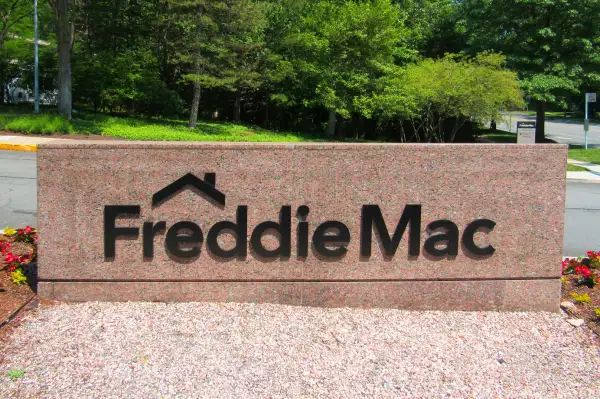How Privatizing Fannie Mae and Freddie Mac Could Affect Homebuyers

A major shakeup is coming for the agency that regulates and supervises federally backed home loans.
President Donald Trump posted last week about his intent to take Fannie Mae and Freddie Mac, two government-sponsored entities that provide guarantees for most mortgage loans, out of federal conservatorship. Bill Pulte, head of the agency that oversees Fannie and Freddie, has echoed the president's call to end government oversight, saying that "Fannie and Freddie shouldn't be in conservatorship forever."
While any major shifts would likely take years to play out, the foundational role these institutions play in housing finance makes even the prospect of change notable for prospective homebuyers, since the transition out of government oversight is likely to affect mortgage rates and some affordable housing programs.
What do Fannie Mae and Freddie Mac do?
Both agencies were originally chartered by the federal government, about 30 years apart, to provide an affordable and reliable funding source for mortgages. Each then transitioned to become a publicly traded company.
Things were going well until the proverbial other shoe dropped in 2008. During the run-up to the housing crisis, Fannie Mae and Freddie Mac purchased large amounts of subprime loans that went bad, helping to precipitate the Great Recession. To keep the institutions from going insolvent — an outcome that could have virtually tanked residential mortgage lending — Fannie and Freddie entered into the conservatorship of the federal government, effectively being taken over by the Federal Housing Finance Agency.
As government-sponsored entities, or GSEs, Fannie and Freddie are cornerstones of mortgage financing. They take the mortgages they buy and package them into mortgage-backed securities that are then sold to investors, providing lenders with the money needed to approve more loans. Fannie and Freddie set strict lending standards, ensuring that borrowers can meet their obligations. They also play a role in providing financing to underserved markets such as rural and manufactured housing.
Analysts argue that with such an important role in housing, any exit from government oversight should still include some form of federal backing.
Michael Bright, CEO of the trade group Structured Finance Association, says that guardrails should be kept in place to ensure Fannie and Freddie can continue to meet their core mission of guaranteeing affordable access to homeownership.
"It is critical to the mortgage market that the U.S. government provides clarity and certainty on its role in agency mortgage-backed securities, and it would be even better if Congress gets involved and writes the guarantee into law," Bright says.
Having both Fannie and Freddie under federal oversight was always meant to be a temporary measure. Both entities were expected to eventually be privatized again after they repaid the $187 billion bailout they received from the U.S. Treasury to stabilize them.
That money was paid back — with interest — years ago. As a result, there have been calls for ending federal oversight and privatizing the GSEs again. The Treasury Housing Reform Plan was introduced during Trump’s first term and sought to lay the groundwork for Fannie and Freddie’s eventual journey back to being publicly traded companies.
Trump has revisited the topic over the past few weeks, posting about taking the agencies public again, noting that they were performing very well and "throwing off a lot of CASH." The reasoning is likely that if Fannie and Freddie can keep more of the money they generate, they would eventually no longer need federal support.
However, Trump has also said the government would retain its "implicit GUARANTEES," although it is unclear what that means at this time.
How Fannie and Freddie's privatization could increase mortgage rates
Experts have speculated that turning Fannie and Freddie back into private entities could impact the housing market. Those impacts could be good or bad, depending on who you ask.
Mike Hardy, managing partner at Churchill Mortgage, says that one of the effects of privatization would be a likely increase in mortgage rates. That's because the backing the federal government provides to the GSEs serves as a sort of subsidy that helps lower rates. Investors assume that the government will guarantee losses up to a certain point, minimizing the risk of a collapse.
If that backing were to be removed, Fannie and Freddie would have to answer to private investors who could demand higher yields in return for taking on greater risk. As Hardy puts it, "One man's debt is another man's asset."
Exactly how much higher could mortgage rates go? Well, that depends on how quickly and to what extent Fannie and Freddie are privatized.
Most experts believe the process could take years, but in an administration that appears to value speed, it could happen sooner.
According to Hardy and other published information about the Trump administration's goals for Fannie and Freddie, if full privatization happens too fast, rates could increase anywhere from half a percentage point to a whole percentage point. However, if the GSEs are partially privatized or the exit is done at a more measured pace, the rate increase could range from 0.1 to 0.5 percentage points.
Of course, higher mortgage rates hurt affordability by increasing borrowing costs, an outcome that Hardy says is most likely to affect borrowers with lower credit scores or who don’t have a large down payment — two factors that can increase the rate lenders offer.
Marty Green, principal at mortgage law firm Polunsky Beitel Green, says another potential impact of GSE privatization involves programs geared toward first-time homebuyers and communities typically underrepresented in the housing market. Given the current administration's emphasis on ending diversity-related incentives, Green predicts that "we could see some of those programs go by the wayside."
The move to limit some of the programs has already begun. In a series of posts on X in March, Pulte announced orders terminating lending programs designed to provide more accessible financing to underserved communities. This could make it harder for younger homebuyers, people of color and less qualified borrowers to buy homes.
The bright side? One thing that's not likely to happen is a subprime housing crisis similar to 2008. Fannie Mae and Freddie Mac "aren't really playing in that space," says Green, referring to the purchase of risky alternative loan products that were at the root of the market collapse.
Time will ultimately tell what will happen to Fannie and Freddie and their role in housing. The next few years will be very interesting for homebuyers, sellers and the housing market in general.






